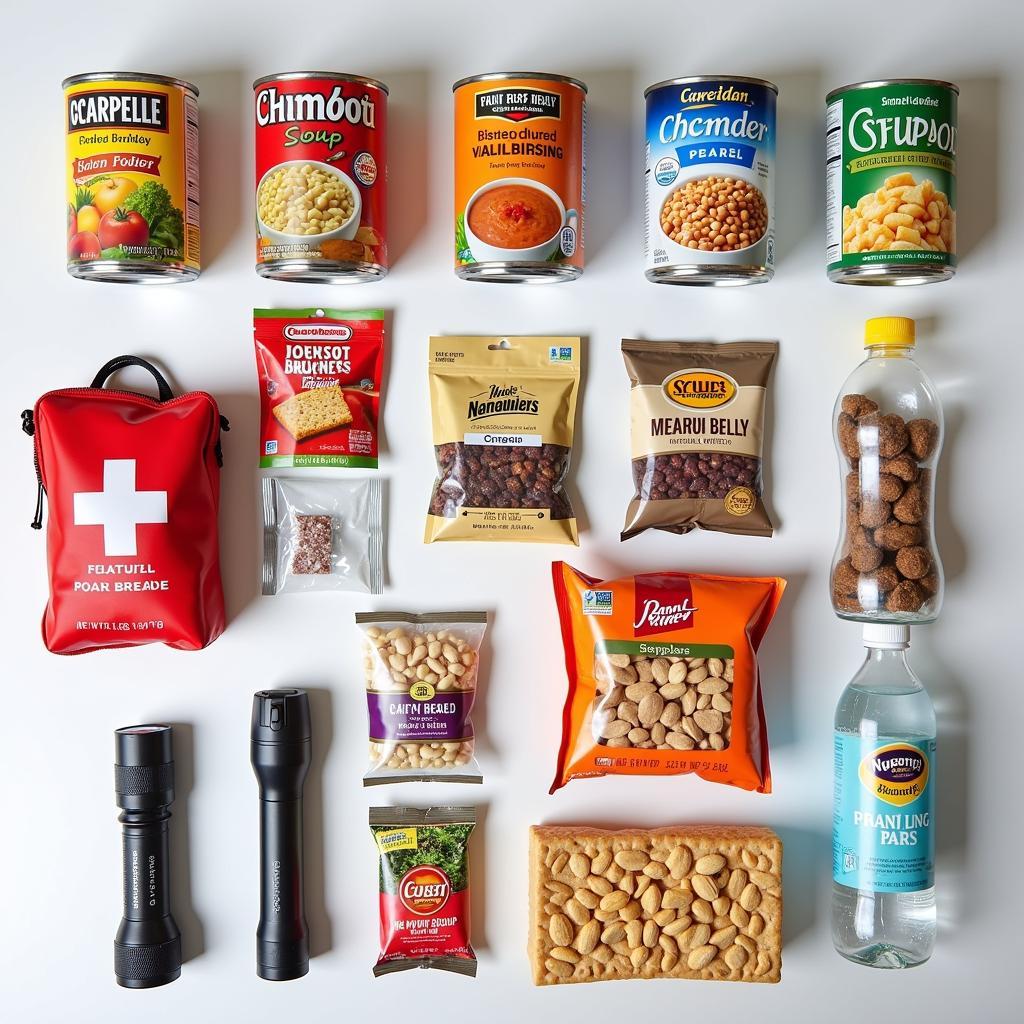A well-planned 72 Hour Food Supply is your first line of defense in any emergency. Whether it’s a natural disaster, power outage, or unexpected disruption, having readily available food provides peace of mind and keeps you and your family nourished. Building a 72 hour food supply isn’t about panicking; it’s about being prepared. This guide will walk you through creating a comprehensive and nutritious emergency food stash.
What to Consider for Your 72 Hour Food Supply Kit
Building a 72-hour kit isn’t just about grabbing any food items; it requires thoughtful consideration. Think about dietary restrictions, allergies, and personal preferences.
What are your family’s go-to meals? Can you incorporate shelf-stable versions of these favorites? Remember, familiarity can bring comfort during stressful situations. Don’t forget about pets! Include their food needs in your calculations.
Building Your 72 Hour Emergency Food Supply: A Step-by-Step Guide
Creating your emergency food supply can be broken down into manageable steps. First, inventory what you already have. Check your pantry for non-perishable items like canned goods, dried fruits, and nuts. Next, make a list of essential items you need to purchase, focusing on nutrition and ease of preparation. dry survival food can be a great option to consider. Finally, organize your supplies in a cool, dry, and easily accessible location.
Choosing the Right Foods for Your 72-Hour Kit
Opt for foods that require minimal or no cooking and have a long shelf life. Canned goods, such as fruits, vegetables, beans, and meats, are excellent choices. Consider incorporating s.o.s. emergency food ration for a compact and readily available source of calories. Don’t forget about essentials like dried fruits, nuts, granola bars, and powdered milk. These are nutrient-dense and require no refrigeration. Also, remember comfort foods like chocolate or hard candies. A little treat can boost morale in challenging times.
 Essential Food Items for a 72 Hour Emergency Kit
Essential Food Items for a 72 Hour Emergency Kit
How Much Food Do You Really Need for 72 Hours?
The general rule of thumb is to aim for at least 2,000 calories per person per day. However, individual needs vary based on age, activity level, and metabolism. Remember, you’re aiming for sustenance, not gourmet meals. Focus on nutrient-rich options that will provide energy and essential vitamins and minerals. Look into options like my patriot survival food for longer-term solutions.
Water: The Unsung Hero of Emergency Preparedness
While food is crucial, water is even more important. Dehydration can set in quickly, so plan for at least one gallon of water per person per day. Store water in airtight containers in a cool, dark place. Consider water purification tablets or a filter as a backup.
Keeping Your 72 Hour Food Supply Fresh
Rotation is key. Regularly check expiration dates and replace items as needed. This prevents waste and ensures you always have a fresh supply of emergency food ready. affordable emergency food can be a cost-effective way to maintain your supplies.
“A 72-hour kit is an investment in your peace of mind. Knowing you have the essentials readily available can make all the difference in an emergency,” says survival expert, Amelia Preston.
“Don’t underestimate the power of comfort food in an emergency. A familiar treat can boost spirits and provide a sense of normalcy,” adds Dr. David Chen, a psychologist specializing in disaster preparedness.
In conclusion, having a 72 hour food supply is a vital step towards being prepared for any unexpected event. By carefully planning, selecting the right foods, and regularly rotating your supplies, you can ensure you and your family have the sustenance needed to weather any storm. Consider longer-term options like a patriot 3 month food supply for enhanced preparedness.
Contact us at Phone Number: 02437655121, Email: minacones@gmail.com, or visit us at 3PGH+8R9, ĐT70A, thôn Trung, Bắc Từ Liêm, Hà Nội, Việt Nam. We have a 24/7 customer service team ready to assist you.